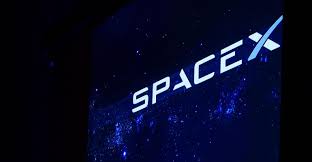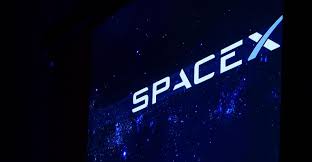
Till now, the main source of revenues for billionaire entrepreneur Elon Musk’s space company SpaceX have been very large communications and military satellites. However the company is now shifting more towards focusing on carrying to space smaller and nimbler satellites.
According to the new business strategy that the company announced recently, there has been a change in its focus. SpaceX now plans to create a "rideshare program" for taking smaller satellites to space. The new business strategy would see the company "regularly” scheduling launches of its mighty Falcon 9 rocket dedicatedly for carrying to into space multiple smaller satellites instead of ferrying large payloads.
"SpaceX is committed to serving the commercial market as it grows and changes, and we believe we can address the needs of small satellite operators," the company said in an emailed statement.
Over the past few years, there has been a meteoric rise in demand for smallsats. The size of the smaller satellites vary considerably – from as small as a smartphone to that of a home refrigerator. With the growth and development of technology for small satellites, a number of companies have flooded the market with the p[assurance of leveraging the technology of smaller satellites for delivering services.
A previously announced plan by SpaceX itself comprises of establishing a broadband network with the help of thousands of smallsats being placed in low-Earth orbit. Offering cheap high-speed internet to communities all over the globe is the aim of the project which is called Starlink.
The waiting list of the smaller satellites to get into orbit is quite long and unpredictable because they are typically tagged along with the larger more expensive satellites.
The booming smallsat demand market has seen many movements in the launch industry in recent years. Offers of providing quick and easy launches for smallsats are being developed by many new rocket companies. The first to start operations commercially is called Rocket Lab and the company has so far undertaken seven such missions with smallsats.
However, this is not the first instance or a services of instances that launch of a number of small satellites has been conducted. It has been many years that satellite rideshares have been done and such trips had been organized by a company called Spaceflight which included a dedicated rideshare on a SpaceX rocket that was launched in December.
Smallsat companies would find it very attracted to the price points and capabilities SpaceX that are being advertised by SpaceX, said Leena Pivovarova, an analyst at Northern Sky Research.
"I think that SpaceX is very well positioned to compete here, and I think this is going to have a really big impact on the dedicated smallsat launch providers," Pivovarova said in a television interview. But the new space program of SpaceXalso still has some unanswered questions. One of them is how the company plans to fit the schedules of its launches of smallsats in the already fixed schedule of a long list of launches.
(Source:www.cnn.com)
According to the new business strategy that the company announced recently, there has been a change in its focus. SpaceX now plans to create a "rideshare program" for taking smaller satellites to space. The new business strategy would see the company "regularly” scheduling launches of its mighty Falcon 9 rocket dedicatedly for carrying to into space multiple smaller satellites instead of ferrying large payloads.
"SpaceX is committed to serving the commercial market as it grows and changes, and we believe we can address the needs of small satellite operators," the company said in an emailed statement.
Over the past few years, there has been a meteoric rise in demand for smallsats. The size of the smaller satellites vary considerably – from as small as a smartphone to that of a home refrigerator. With the growth and development of technology for small satellites, a number of companies have flooded the market with the p[assurance of leveraging the technology of smaller satellites for delivering services.
A previously announced plan by SpaceX itself comprises of establishing a broadband network with the help of thousands of smallsats being placed in low-Earth orbit. Offering cheap high-speed internet to communities all over the globe is the aim of the project which is called Starlink.
The waiting list of the smaller satellites to get into orbit is quite long and unpredictable because they are typically tagged along with the larger more expensive satellites.
The booming smallsat demand market has seen many movements in the launch industry in recent years. Offers of providing quick and easy launches for smallsats are being developed by many new rocket companies. The first to start operations commercially is called Rocket Lab and the company has so far undertaken seven such missions with smallsats.
However, this is not the first instance or a services of instances that launch of a number of small satellites has been conducted. It has been many years that satellite rideshares have been done and such trips had been organized by a company called Spaceflight which included a dedicated rideshare on a SpaceX rocket that was launched in December.
Smallsat companies would find it very attracted to the price points and capabilities SpaceX that are being advertised by SpaceX, said Leena Pivovarova, an analyst at Northern Sky Research.
"I think that SpaceX is very well positioned to compete here, and I think this is going to have a really big impact on the dedicated smallsat launch providers," Pivovarova said in a television interview. But the new space program of SpaceXalso still has some unanswered questions. One of them is how the company plans to fit the schedules of its launches of smallsats in the already fixed schedule of a long list of launches.
(Source:www.cnn.com)














